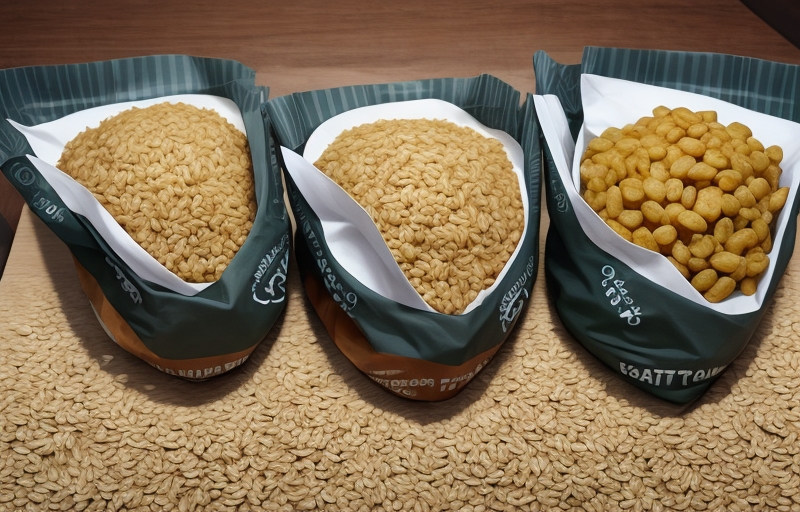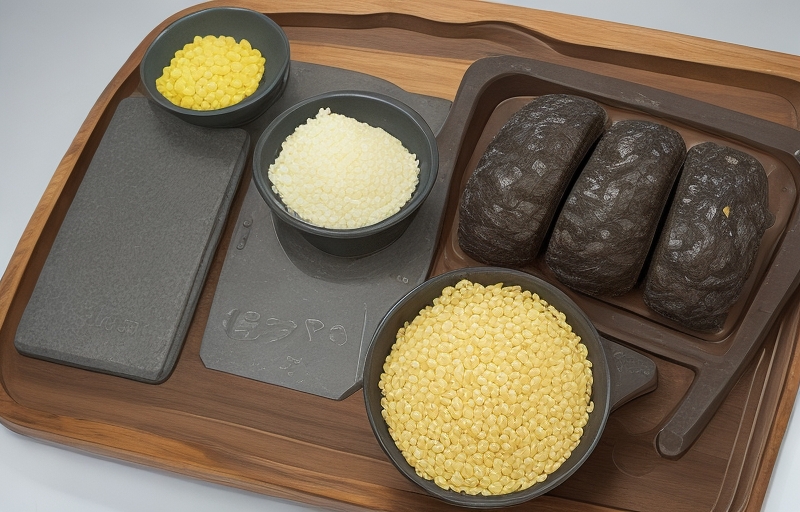Discover the role of carbohydrates in Boosting Doggy Energy levels. Explore healthy sources like sweet potatoes and brown rice, and learn when caution is needed. Ensure your furry friend’s well-being with expert tips on incorporating carbohydrates into their diet.
Introduction:
Our furry companions, with their boundless energy and enthusiasm, require a well-balanced diet to support their active lifestyles. Among the essential nutrients, carbohydrates play a crucial role in providing sustained energy for dogs. In this article, we will explore the significance of carbohydrates in a dog’s diet, highlight nutritious sources like sweet potatoes and brown rice, and discuss important considerations when incorporating carbohydrates into their meals.
Read Also: Adapting Diets for Dogs’ Life Stages
Understanding the Role of Carbohydrates:
Carbohydrates serve as a primary source of energy for dogs, supplying glucose that fuels various bodily functions. Unlike humans, who can derive energy from both carbohydrates and fats, dogs predominantly rely on carbohydrates as a quick and efficient energy source. These nutrients help maintain muscle function, support brain activity, and contribute to overall vitality.
Role of Carbohydrates in Boosting Doggy Energy Levels

Sweet Potatoes:
Sweet potatoes are an excellent source of complex carbohydrates, fiber, and essential vitamins. They provide a slow-releasing energy that helps sustain your dog’s activity levels throughout the day. Additionally, sweet potatoes contain antioxidants that promote overall health and support the immune system.
Brown Rice:
Brown rice is a whole grain rich in complex carbohydrates, fiber, and essential minerals. It is easily digestible for dogs and offers a steady release of energy. The fiber content in brown rice also aids in maintaining a healthy digestive system, preventing constipation, and regulating blood sugar levels.
Oats:
Oats are another valuable source of carbohydrates for dogs. They contain beta-glucans, a type of soluble fiber that helps regulate cholesterol levels and supports cardiovascular health. Oats provide a sustained energy release, making them an excellent addition to your dog’s diet.
Quinoa:
Quinoa is a protein-rich grain that also supplies complex carbohydrates. It contains all nine essential amino acids, making it a complete protein source for dogs. Quinoa is easily digestible and offers a gluten-free alternative for dogs with sensitivities.
Barley:
Barley is a whole grain that provides a good balance of carbohydrates, fiber, and essential nutrients. It can be included in your dog’s diet to enhance energy levels while supporting digestive health.
Considerations Before Adding Carbohydrates:

Consult with a Veterinarian:
Before making any significant changes to your dog’s diet, it is crucial to consult with a veterinarian. They can provide personalized advice based on your dog’s breed, age, weight, and overall health condition.
Balance with Other Nutrients:
While carbohydrates are essential, it’s crucial to maintain a balanced diet. Ensure that carbohydrates are complemented with adequate protein, healthy fats, vitamins, and minerals to meet your dog’s nutritional requirements.
Monitor for Allergies or Sensitivities:
Keep a close eye on your dog for any signs of allergies or sensitivities to new carbohydrate sources. Symptoms may include itching, digestive issues, or changes in behavior. If such signs occur, consult your veterinarian promptly.
Avoid Artificial Additives:
When selecting commercial dog food or treats, avoid products with excessive artificial additives, preservatives, or sweeteners. Opt for natural and minimally processed carbohydrate sources to promote optimal health.
When Not to Use Carbohydrates for Dogs:

While carbohydrates are generally beneficial for dogs, there are specific situations where caution is warranted:
Diabetes:
Dogs with diabetes may require a specialized diet that controls their blood sugar levels. Carbohydrates can impact insulin sensitivity, and their intake should be carefully monitored under veterinary guidance.
Food Allergies or Sensitivities:
Some dogs may develop allergies or sensitivities to certain carbohydrates. If you notice symptoms such as itching, gastrointestinal issues, or behavioral changes, it’s essential to identify and eliminate the problematic carbohydrate source.
Obesity or Weight Management:
Dogs with obesity or weight management issues might benefit from a diet with controlled carbohydrate content. In such cases, consulting a veterinarian to determine an appropriate diet plan is crucial.
Specific Medical Conditions:
Dogs with certain medical conditions, such as pancreatitis, may require a specialized diet with limited fat and moderate carbohydrate content. Always follow the advice of your veterinarian when managing such conditions.
Conclusion:
Incorporating carbohydrates into your dog’s diet can significantly contribute to their overall well-being and energy levels. Choosing nutrient-rich sources like sweet potatoes, brown rice, oats, quinoa, and barley ensures that your furry friend receives a well-rounded and balanced diet. Always prioritize consultation with a veterinarian, monitor for any adverse reactions, and maintain a careful balance of nutrients for a happy and healthy canine companion.
FAQs:
Q1: Can I give my dog too many carbohydrates?
Yes, excessive carbohydrates can lead to weight gain and other health issues. It’s crucial to balance carbohydrate intake with your dog’s overall diet and energy needs.
Q2: Are there specific carbohydrates to avoid for dogs?
Some dogs may be sensitive to grains like wheat or corn. Monitor your dog for any adverse reactions and consult your veterinarian if you suspect allergies.
Q3: Can I prepare homemade carbohydrate-rich meals for my dog?
Yes, homemade meals can be beneficial, but it’s essential to ensure a balanced diet. Consult with a veterinarian to create a nutritionally complete and safe homemade meal plan.
Q4: Are carbohydrates necessary for all dogs?
While dogs can thrive on diets with controlled carbohydrate content, consult your veterinarian to determine the specific dietary needs based on your dog’s age, breed, and health condition.

1 thought on “Role of Carbohydrates in Boosting Doggy Energy Levels”